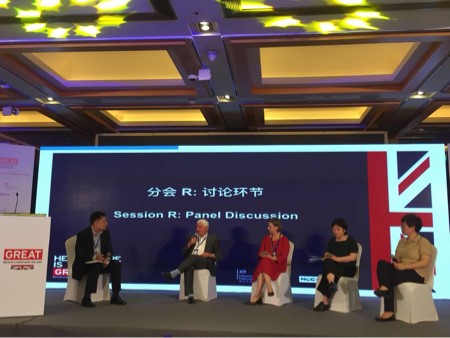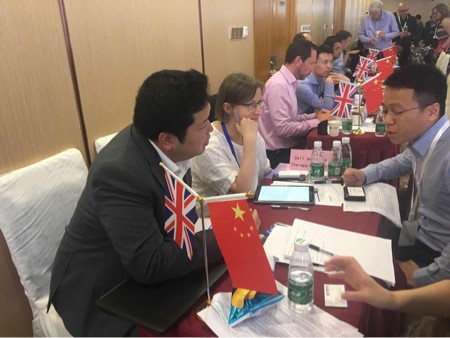31st July 2018 Shanghai
UK and China join forces to fight cancer
The film “Dying to Survive” is now very popular in China. It is based on the true story of a Chinese leukaemia patient who smuggled cheap cancer drugs between India and China for himself, and 1,000 other cancer sufferers. He was arrested in 2015 and surprisingly was released after thousands of Chinese leukaemia sufferers signed an open petition. This kind of response from Chinese authorities is extremely rare. What was even more unusual is that the case prompted government to move towards making cancer medicines more accessible and affordable.
I am not a spokeswoman for this film, nor am I going to comment on the moral or legal aspects of the case. But just think about how demand from the market made a centralised government compromise. The staggering statistics show just how severe the situation in China is. According to China’s National Cancer Centre, China has nearly 40% of the world’s cancer population. In 2015, 4.3 million new cancer cases were diagnosed with more than 2.8 million deaths. A report from the Economist in 2017 looking at 49 new cancer treatments that entered the global market between 2010-2014 found that only 6 were available in China, compared with 41 in the US. The national healthcare insurance system offers only basic coverage, with an average out-of-pocket cost for cancer patients between £16,000-£25,000, according to state-run Xinhua news agency.
It was with this context that I recently attended the UK-China Oncology Congress in Beijing and Guangzhou last month. The event was led by colleagues in China from the Department of International Trade (DIT) in close collaboration with the Health team, the Science and Innovation Network (SIN), and Invest Northern Ireland. Over three days, 600 Chinese stakeholders were brought together to engage with 37 UK organisations representing British excellence and expertise in oncology. The main objective of the congress was to bring UK exports, innovative technologies and Chinese investment into the rapidly evolving life sciences industry and to tackle the immense and growing disease burden that China is facing.

The SIN team played a vital role. We focused on one special session of the Oncology Congress – Cell and Gene Therapy. This area of science/innovation has been given a big boost in recent years, as it has the potential to be a game-changer in how we treat diseases. By modifying and adapting the cells or genes of a patient, such treatments can strengthen the body’s ability to identify and fight diseases, such as cancer. However, it is still an emerging area. Whilst the UK has advantages in technology and regulations, China has more clinical cases. So collaboration is crucial in terms of scalability, matching resources and sharing learning. Using the Global Partnerships Fund (GPF) we brought out experts from the Cell and Gene Therapy (CGT) Catapult and University College London to follow up on previous collaborations in this field. We also secured a key stakeholder, James Li, the CEO of the Chinese life science company JW Therapeutics, as a panel chair. Bringing together UK and Chinese experts, the session ignited hot topics such as the cutting edge technologies within cell and gene therapy, what the main challenges are, what the regulatory frameworks are in the UK and China and how to select cancer patients that are eligible for immunotherapy.
Normally films that touch on such sensitive topics would not pass state censorship. The release of “Dying to Survive” was an exception, and shows China’s resolution to open up itself and tackle healthcare issues. Just earlier this year, China cut the import tariff for all cancer drugs to zero. A fast track to market for innovative medicines has also been introduced, the lung cancer drug AstraZeneca’s Tagrisso was the first to be approved under this pathway. There are huge opportunities for UK researchers and SMEs, from hospitals looking to build international links and offer consultancy services, medical companies looking to grow their market share, to R&D projects seeking investment and partners. I feel excited that SIN is playing an important role in this move forward.

